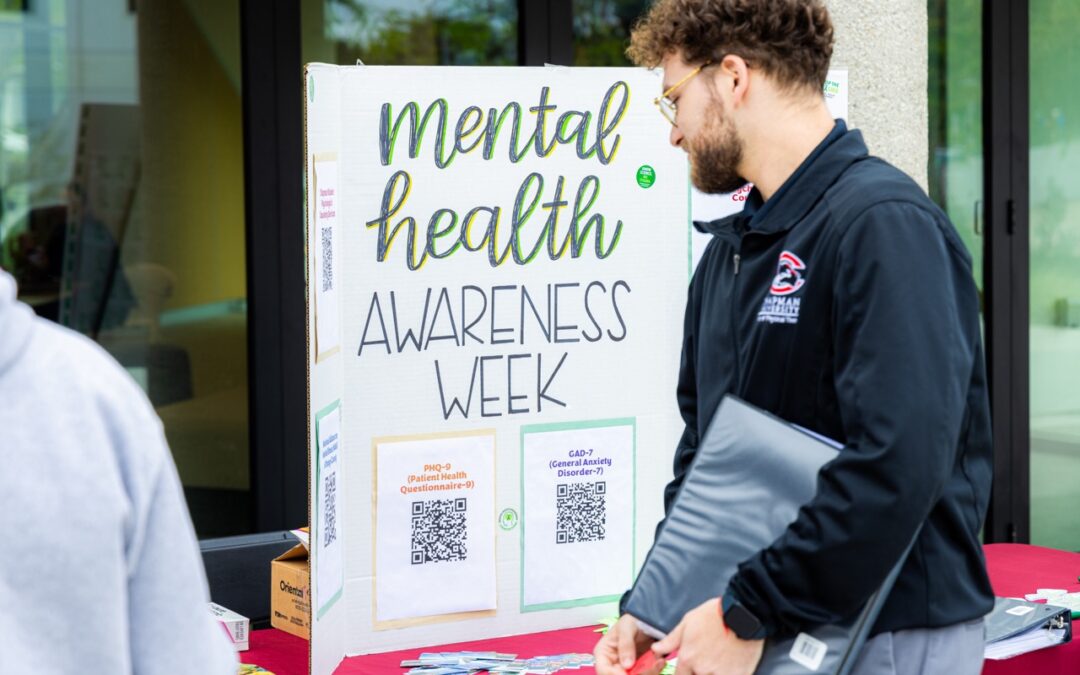San Diego therapy for college student mental health is often reduced to what looks like “wellness-washing.” Walk around a campus during “Mental Health Awareness Week” and it feels more like marketing than medicine. Posters, hashtags, free water bottles, every slogan smoothed down to the safest, blandest message. It’s the same playbook as Pride Month pinkwashing at Target: take something real, flatten it into a brand moment, and HR pats themselves on the back. This same concept is happening with mental health. Don’t believe me? Check out this blog 6 Beauty and Wellness Brands Supporting 2024 Mental Health Awareness Month.

As a therapist in San Diego, I see this all the time. Universities roll out stress-relief weeks with slogans like “Feel your feelings” or “Take a deep breath.”Sure, those reminders aren’t harmful, but they barely scratch the surface of what students and communities really need when facing anxiety, depression, or burnout.
Remember the Soul.
The word psychotherapy comes from two roots in greek: psyche (soul) and therapeia (care). Care of the soul. Not tips. Not worksheets. Soul.
Depth psychologists, existentialists, and archetypal thinkers knew that anxiety and despair weren’t just medical glitches to be managed; they were clues. Cracks in the surface that might lead to a fuller, more honest life. Jung called neurosis “the suffering of a soul that has not yet discovered its meaning.” Compare that to handing someone a sticker that says “use positive self-talk.”
Thomas and the Handout
Take Thomas, a San Diego college student who visits his counseling office with academic anxiety. He explains that grades keep him awake at night and that anything less than an A feels like failure. The counselor listens and hands him a worksheet:
-
Breathe
-
Use positive self-talk
-
Break tasks into chunks
-
Cut caffeine
-
Sleep more
Maybe that helps. Maybe it doesn’t. But what a waste of an opening. Where’s the real question: What do grades mean to you? What do they say about who you are? That’s the kind of conversation that could lead somewhere that doesn’t just help thomas discover ways to but inviting him into the deeper, even chthonic layers of reflection and curiosity.
It’s worth saying outright: most campus counseling centers are doing the best they can with the staff, budget, and training they have. The demand far outweighs the resources, and short-term treatment with practical handouts is often the only way to reach as many students as possible. I don’t doubt there are times when a single worksheet like ‘five tips for managing panic’, has literally saved a life. This isn’t about criticizing any one person or psychotherapeutic theory. It’s about recognizing that when mental health care is reduced to what’s most scalable, the soul often gets left out of the picture.
Struggle as Invitation
When “mental health advocacy” boils down to slogans, it strips away the real invitation. Anxiety about grades isn’t just a bug to fix; it’s a chance to ask who you are apart from performance. Depression can press the question of meaning. Grief can teach love.
Reducing these things to PR campaigns or coping hacks is like handing someone a Hallmark card when what they need is a psalm.
Care of the soul doesn’t fit on a poster. It means listening without rushing. Asking questions nobody else bothers to ask. Refusing to treat suffering as an inconvenience to be patched.
Mental health struggles aren’t branding opportunities. They’re summonses into a deeper life. Until universities and communities recognize that, most of their “awareness” work will stay what it already feels like: the pinkwashing of the psyche.
Questions Worth Asking
If mental health is soul-care, then the work begins with curiosity. Here are some questions students might journal about, not to fix themselves, but to start knowing themselves:
-
When was the first time you remember feeling praised for getting a good grade?
-
When was the first time you remember looking down on someone else for getting a bad grade?
-
Who are you most afraid of disappointing?
- What would it mean to you if that person responded to you with unconditional acceptance regardless of your grades?
-
Since your current relationship with grades is causing so much anxiety, if you could wave a wand and change your brain, what type of relationship would you like to have with school and grades?
-
What did school and performance mean in your family growing up?
-
If grades didn’t exist, how would you measure your own growth and success?
-
How do you treat yourself differently after an A compared to after a C?
-
Whose voice do you hear in your head when you think about failing?
None of these are coping tips, but they are doorways into the soul.
Beyond Slogans: Real Mental Health Care in San Diego
At Sonder Therapy Group here in San Diego, our team doesn’t reduce therapy to slogans or handouts. We work with college students, professionals, and families who want more than surface-level advice. Real therapy asks deeper questions. Real therapy helps you see your anxiety, depression, or grief not just as problems to fix, but as thresholds: moments that can open you to meaning, transformation, and growth.
Mental health isn’t about PR campaigns. It’s about soul-care. And until institutions stop treating it like wellness-washing, students like Thomas will continue to miss the chance to truly know themselves.
If you’re in San Diego and looking for therapy that goes deeper, whether it’s for anxiety, depression, or navigating life transitions, our team at Sonder Therapy Group is here to help. Click here to send us a message.

